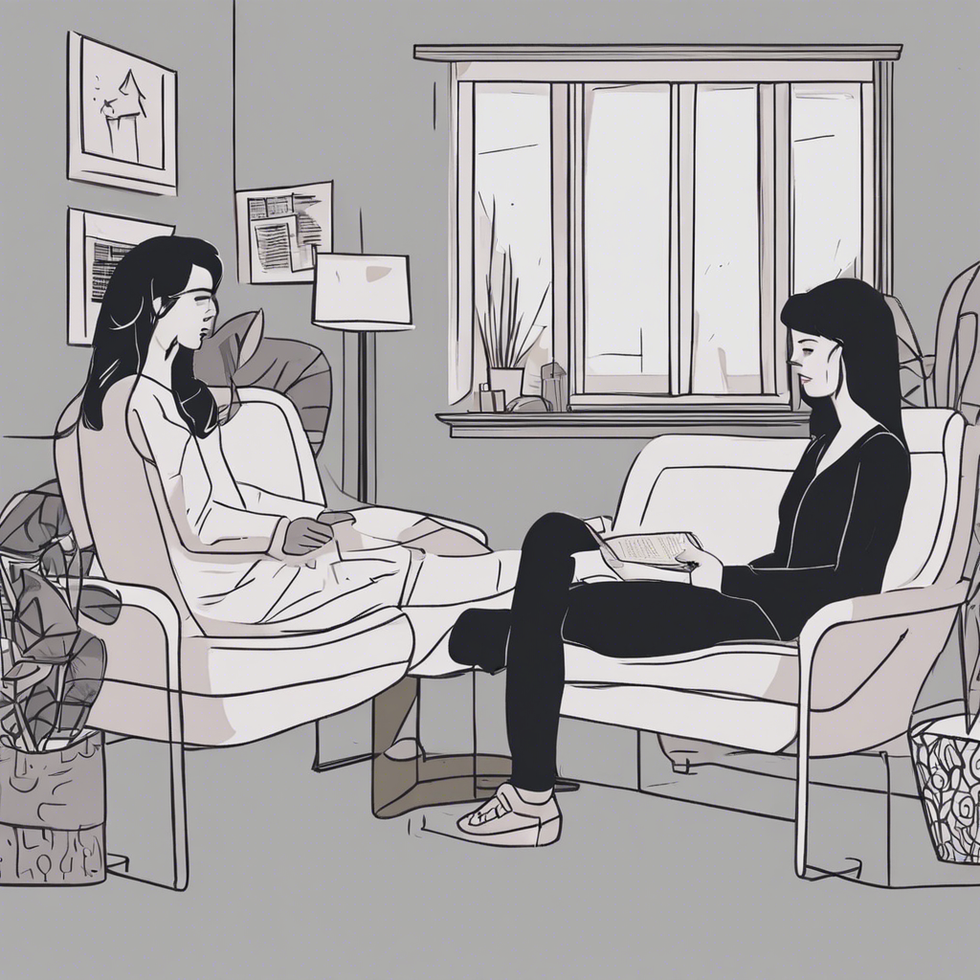Gucci Mane is not remarkable for mastery of classical characteristics of good rap—flow, rhyming, wordplay, subject matter, etc. He rarely deviates from the drugs, money, hoes tough guy narrative of the 2000s; unlike Tupac and Biggie who spoke on the same subjects, Gucci shows little to no self-awareness. He doesn’t even offer the old college try like DJ Quik’s “Jus Lyke Compton.” While he does acknowledge the ruin of East Atlanta, Gucci makes no recommendations, no comment on what he thinks of the situation. His tone and flow can be frighteningly boring at times. Pre-federal penitentiary, pre-sobriety Gucci Mane sounds like a drip of syrup through a mouth of cotton balls. Post-federal penitentiary, post-sobriety Gucci sounds like someone pulled the cotton balls out. “Wasted” is a prime example of this; Gucci’s chorus is a hedonistic drone that conveys absolutely no investment in the moment. Gucci doesn’t attempt much wordplay either. There are no punchlines in “First Day Out Tha Feds” which is confined to a 5th grade vocabulary. Gucci's skill does not lie in the traditional realms of rap.
Instead, in “First Day Out Tha Feds,” Gucci’s talent starts to shine after the line “It’s a lot of people scared of me and I can’t blame them.” Gucci now begins to reflect upon himself through the lens of others’ reactions. “They call me crazy so much, I think I’m starting to believe ‘em / I did some things to some people that was downright evil” is accompanied by a shrug; Gucci feels no remorse. The kicker comes, though, with the line: “My own mama turned her back on me / and that’s my momma!” Gucci is participating in abstraction, a hallmark of modernism. He is not reliving the event; he makes no mention of any emotion attached to it. Instead, he analyzes the occurrence as a symbol—is he really evil and crazy? Gucci is thus distanced from the primary reality of what happened. This idea of distance was repeated in the lines before as Gucci requires the prompting of others to determine his nature rather than his own self-awareness. His incredulousness and puzzlement becomes more untenable by the second—he even admits he has done things that are “downright evil”—but still, he maintains his facade of detached conflict. This situation is absurd, it is exaggerated, it is postmodern.
Gucci Mane’s music fits right into a movement about all sorts of unreality. Guwop is, at times, obvious, using the classic techniques of the genre without subtlety. In “I Think I Love Her,” Gucci recounts his unreciprocated love, but as the song progresses, it becomes clear that the woman Gucci is rapping about is cocaine with “I stashed her in my fender while I stashed her in my tire.” Instead of committing to making a metaphorical song about drugs, though, Gucci makes the human aspect of the “woman” undeniable by giving “Susie” the woman/cocaine a voice through Ester Dean. In the end, rather than a total parallel for cocaine or a total parallel for a woman, the object of Gucci’s affection is a woman/cocaine amalgamation. She throws fits/is super thick/is mean as shit and can be kept in his fender. Gucci has constructed a new reality to allow for the simultaneous illustration of his love for women and cocaine. On “All My Children,” Gucci returns to another trope of postmodernism as he raps “I had to make a track to say I’m proud of you / Stop that track to tell my children that I’m proud of them.” This segment is lightning quick and references the song’s limitations as a song, another common technique of the genre. Despite these examples, though, most of Gucci’s music does not employ such transparent references to postmodernism. Gucci is more than the parlor tricks of old. His take on the movement is complicated by his apparent sincerity. Gucci really did make a track to tell his children that he’s proud of them, and the track really did stop so that Gucci could tell his children that he’s proud of them. His music seesaws between total straight-laced sincerity and complete satire, neither of which perfectly fit. The postmodernism of Gucci Mane is not the sci-fi alternate world of freakishly talented children or time-traveling; it is the tension within the listener to decide to take Gucci at face value or not. Because of his often ridiculous sentiments, the listener’s decision of whether to believe Gucci is a decision of whether Gucci’s proclamations exist within the bounds of human nature and thus whether or not Gucci is representing reality.
Nowhere is this more obvious than in “Iced Out Bart.” Gucci details the miserable indifference he feels towards others through the metaphor of his Bart Simpson necklace. The song is best summarized in one line: “I got an iced out Bart where my heart used to be.” Superficially, the message is straightforward. Gucci is soulless, completely devoured by materialism. He offers more humanity to his jewelry than he does the people that he hurts. He names his necklaces and bracelets and suggests their familial relations to each other. The only actor in Gucci’s narrative that he names is “Nicole,” the listener’s girlfriend; this, he does only to further injure and offend and thus better demonstrate his ruthlessness. Gucci’s delivery throughout the chorus is also suitably monotone, offering no suggestion to the contrary to his statements. The song is not completely devoid of emotion, though; a strange overwrought “yeah” follows every utterance of the mantra “I got an iced out Bart where my heart used to be.” This “yeah” serves to further emphasize his cruelty; it is a happy endorsement of the statement. Most notably, though, it contradicts the theme of the song as Gucci is displaying a sort of emotional reaction. Gucci doesn’t attempt to resolve this. It is now up to the listener to either believe Gucci’s claim of limitless brutality or distrust him. The listener then must decide what reality he or she lives in—is Gucci truly barbaric or is he hamming it up?
This question is the central concern of Gucci’s oeuvre. Few songs go by without such an absurdity. The suggestion of camp is most often embodied in the theatrical “yeaaah,” though in other songs such as “All My Children” where Gucci piles on the superlatives, the absurdity sits closer to the surface. Gucci never openly contradicts his narrative, but by so enthusiastically, ridiculously advocating for it, taking it to absolutes and extremes—“Don’t nobody love you like Guwop love you”—Guwop inevitably leads the listener to question him. The listener must then decide what sort of world they would like to believe in.
Rap has long been obsessed with authenticity. N.W.A. sought to tell the story of Compton as they experienced it, and Biggie rapped about his life story and reflections throughout his albums. Even recently, the fixation has not died down. Uproar over Iggy Azalea was tied to her inflection while rapping. Since she came from Australia and spoke with an Australian accent in interviews, the “Dirty South” style felt stilted and disingenuous coming from her. Gucci directly engages with that assumption by blending his narratives and offering conflicting evidence of it. Wizop thus falls in line with literary giants like Vladimir Nabokov and Kurt Vonnegut. Rather than the classic unreliable narrator like Nabokov’s Humbert Humbert, Gucci Mane doesn’t even allow the listener the certainty of knowing that he mightbe lying. Instead, Gucci localizes the conflict completely to the audience; listening to his music ultimately becomes self-reflection.



 Photo by
Photo by  person holding black smartphone on white textile
Photo by
person holding black smartphone on white textile
Photo by  StableDiffusion
StableDiffusion
 Photo by
Photo by  Photo by
Photo by 
 roommate as a therapist
StableDiffusion
roommate as a therapist
StableDiffusion
 woman in white shirt eating pizza
Photo by
woman in white shirt eating pizza
Photo by  person holding remote pointing at TV
Photo by
person holding remote pointing at TV
Photo by  person holding assorted clothes in wooden hanger
Photo by
person holding assorted clothes in wooden hanger
Photo by  a couple of
a couple of  friends cleaning apartment
StableDiffusion
friends cleaning apartment
StableDiffusion
 man driving car during golden hour
Photo by
man driving car during golden hour
Photo by  bacon strips and melted cheese topped fries on oval white and blue platter with gray stainless steel forks
Photo by
bacon strips and melted cheese topped fries on oval white and blue platter with gray stainless steel forks
Photo by  selective focus photography of eyeshadow palette
Photo by
selective focus photography of eyeshadow palette
Photo by  brown wooden framed white padded chair in between green indoor leaf plants inside bedroom
Photo by
brown wooden framed white padded chair in between green indoor leaf plants inside bedroom
Photo by  women forming
women forming  taking
taking  man in red polo shirt pouring wine on clear wine glass
Photo by
man in red polo shirt pouring wine on clear wine glass
Photo by  woman in black jacket standing on road during daytime
Photo by
woman in black jacket standing on road during daytime
Photo by 
 StableDiffusion
StableDiffusion
 StableDiffusion
StableDiffusion
 student thinking i shouldnt have procrastinated all semester
StableDiffusion
student thinking i shouldnt have procrastinated all semester
StableDiffusion
 Photo by
Photo by  Photo by
Photo by  Photo by
Photo by  StableDiffusion
StableDiffusion
 StableDiffusion
StableDiffusion
 Photo by
Photo by  Photo by
Photo by 


 Lumiere figure at the Disney Store at the Ala Moana Shoppi… | Flickr
Lumiere figure at the Disney Store at the Ala Moana Shoppi… | Flickr








 StableDiffusion
StableDiffusion StableDiffusion
StableDiffusion 10. Extra BlanketsJuwenin Home 100% Cotton Knitted Throw Blanket
10. Extra BlanketsJuwenin Home 100% Cotton Knitted Throw Blanket StableDiffusion
StableDiffusion StableDiffusion
StableDiffusion File:Kishlaru familie.jpg - Wikimedia Commons
File:Kishlaru familie.jpg - Wikimedia Commons Photo by Hanna Balan on Unsplash
Photo by Hanna Balan on Unsplash StableDiffusion
StableDiffusion black blue and yellow round illustrationPhoto by
black blue and yellow round illustrationPhoto by 









